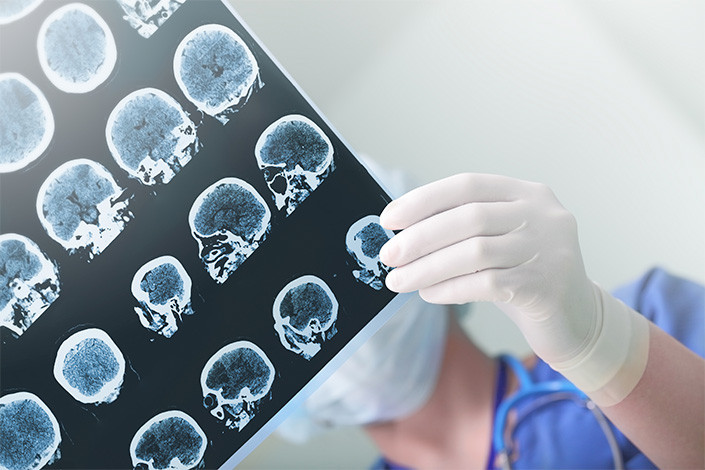Types of Traumatic Brain Injuries
Oct 30, 2022
Traumatic brain injury (TBI) happens when a sudden blow or bump to the head damages the brain. Falls and motor vehicle accidents are the top causes of TBIs. Typically a result of blunt or penetrating trauma, different types of traumatic brain injury may vary in severity.
When TBI happens, the brain crashes within the skull resulting in bleeding, bruising, or the shearing of axons. Axons, also called nerve fibers, are long, slender projections of nerve cells that transmit electrical impulses to neurons.

After the initial impact, the brain may swell. Swelling of the brain may cause brain tissue to exert pressure against the inside of the skull, leading to reduced blood circulation and excessive bleeding.
If the swelling isn't managed, the brain may become starved of nutrients and oxygen, causing brain cell death. This is usually what leads to the most common brain injury symptoms.
Since TBIs vary in severity, many injured victims recover within days. However, more severe injuries can cause permanent brain damage or even death. The type of brain injury a person sustains determines the type of TBI rehabilitation program they will need during recovery.
Common Types of Head Injuries
TBI is a broad term encompassing a wide range of brain-related injuries. While the sources and causes of TBIs may be diverse, most typically fall into two main brain injury types: closed injuries and penetrating head injuries.
Closed injuries refer to non-penetrating injuries that don't break in the skull. These injuries are usually caused by auto crashes, falls, and sports injuries. Penetrating injuries, on the other hand, happen when there's a break in the skull.
Within these two categories, there are various types of traumatic brain injuries.
Concussion
A concussion, also known as a mild TBI, is the most common type of TBI. These brain injuries may entail brief changes in consciousness, like feeling dizzy or losing consciousness for less than 30 minutes. Concussion symptoms typically range from mild to severe. In rare cases, a concussion can lead to lasting complications.
An individual with a concussion may experience confusion for roughly one day. If mild TBI symptoms persist for more than 30 days, there is a risk of developing post-concussion syndrome. This happens when concussion symptoms — such as poor concentration, headaches, changes in mood, and dizziness — persist beyond the normal course of recovery.
Coup-Contrecoup Injury
This type of TBI occurs when damage to the brain happens on both sides. The phrases "coup" and "contrecoup" are French for blow and counterblow, respectively.
A coup-contrecoup injury happens when the force of the initial impact is great enough to cause brain injury but is also great enough to force the brain to move in the opposite direction, hitting the other side of the skull. These types of traumatic brain injuries typically happen when a person slams their head against a stationary object, like a steering wheel.
This back-and-forth movement of the brain can lead to the shearing of blood vessels and brain tissues, causing swelling of the brain, bruising, and internal bleeding.
Brain Hemorrhage
A brain hemorrhage is bleeding in the brain that should be treated as a life-threatening emergency. It features uncontrolled bleeding with brain tissue or on the brain's surface. Brain hemorrhages within cerebral matter are known as intracerebral hemorrhages, while subarachnoid hemorrhages are those that occur in the subarachnoid space — between the arachnoid membrane and the pia mater. The latter usually occurs on the surface of the brain.
Intracranial Hematoma
Intracranial hematoma is a collection of blood within the skull. It can be caused by acute bleeding inside your brain or skull. Large intracranial hematomas can lead to severe injuries or even death. There are various types of intracranial hematomas, including:
- Subdural hematomas. Blood clots between the arachnoid membrane and the dura mater
- Epidural hematomas. Blood clots between the dura mater and skull bone
- Intraventricular hemorrhage. Bleeding into the brain's ventricles
At times, intracranial hematomas may not develop until days or weeks after an injury to the head. Head trauma, caused by sporting activities and falls, are some of the causes of brain bleeds.
Symptoms of bleeding in the brain may include:
- Seizures
- Nausea and vomiting
- Weakness and numbness
- Slurred speech
- Loss of balance
- Difficulty reading or writing
Diffuse Axonal Injury
Diffuse axonal injury (DAI) occurs after violent stopping or due to rotational forces. These types of traumatic brain injuries are some of the most severe TBIs. DAI typically causes coma as well as injury to various parts of the brain.
The severity of the symptoms of DAI depends on the extent of the tears and where they are located. An individual will experience more serious effects if many axons are torn.
How a TBI Can Affect a Person's Life
After sustaining a violent blow to the head during a fall, sporting activity, or a car crash, it's advisable to seek immediate medical attention. Never disregard medical care even when you feel okay. Remember, symptoms of TBI may not be immediately apparent. Your doctor may perform necessary medical tests to ascertain whether you have a head injury.
TBI produces both acute and chronic consequences that may cause permanent disabilities. Depending on the part of the brain that is injured, TBI can have various physical impacts as well as varying degrees of impact on mobility. It may lead to:
- Loss of stamina
- Sleep changes
- Affect vital body functions like smell, taste, vision, touch, and hearing
- Paralysis
- Spasticity
TBI can also have cognitive effects. It may affect one's memory, language, problem-solving skills, empathy, and attention. TBI victims may also have issues with executive functions like abstract thinking, planning, initiating proper actions, and cognitive flexibility.
A head injury can also affect a victim's behavioral and emotional capacity. Common changes may include:
- Apathy
- Impulsiveness
- Obsession
- Lack of motivation
- Depression
- Aggression
Other challenges that a TBI victim may experience include:
- Difficulty participating in social, recreational, or leisure activities
- Inability to go to school or keep a job
- Difficulty making or keeping professional and personal relationships
- Costly medical bills related to treatment, including medication, rehab, physical therapy, speech therapy, and surgery
We Can Help You Seek Damages for Your Brain Trauma
Have you or someone you care about sustained a TBI in Wyoming due to someone else's negligence? Are you wondering what causes traumatic brain injuries? Then contact a reliable Wyoming traumatic brain injury lawyer to find out if you have a valid brain injury claim.
At The Spence Law Firm, our lawyers are ready to look into the facts of your case, assess your condition, and advise you on the best course of action. We will help you recover fair compensation for your TBI. Contact us today to discuss all available legal remedies.

Meet with us.
If you are struggling with a serious injury, or are fighting against seemingly impossible odds against big corporations, insurance companies or the government, call us to speak with our team of trial lawyers who will fight for you. We take no fee unless we earn it by winning your case.